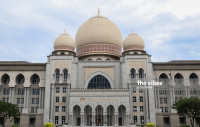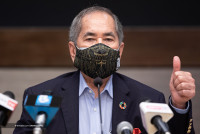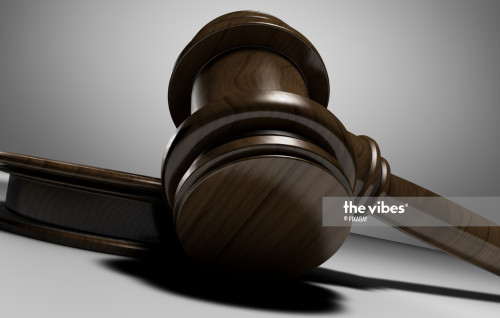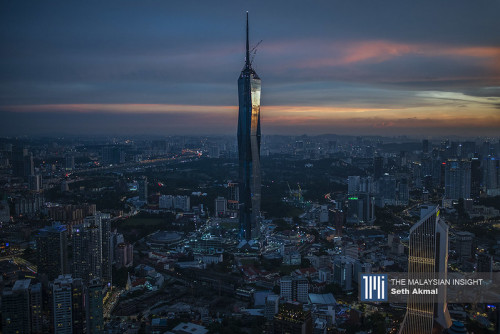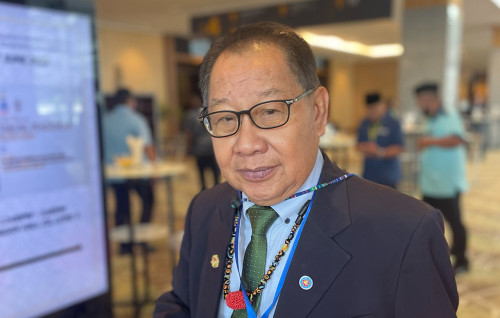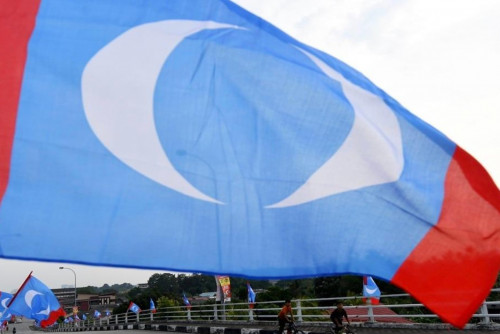KUALA LUMPUR – In the course of proceedings discussing the principles of Rukun Negara in 1970, venerable sociologist Prof Datuk Syed Husin Alatas argued for the adoption of a sixth principle – a society rooted in the principles of anti-corruption.
Decades on, every administration in the country has declared corruption to be a principal “scourge” of Malaysian society. Yet, efforts to eradicate corruption have proved less than wilful, while an understanding of what corruption actually is, and entails, remains rudimentary.
Launched in April, Rasuah Busters strives to be truly a people’s movement, a disruptor in the fight against corruption.
The Vibes’ Eddin Khoo speaks to Datuk Hussamuddin Yaacub, founder of Rasuah Busters, about the nature of corruption, and the strategies adopted by the movement to eradicate the culture of corruption in Malaysia.
Eddin Khoo: Corruption has been a practice in our culture for a long while – what was the catalyst for your forming of the Rasuah Busters movement at this time?
Hussamuddin Yaacub: The main trigger for the Rasuah Busters movement was Covid-19.
In these pandemic times, if matters of corruption and misuse of power are allowed to take root, they will have the most devastating effect on our society and bring about great poverty for the people. This will be the end result.
Corruption has been taking place for close to 50 years. It has grown from a marginal issue to a complete culture now, and it isn’t just a problem among a single race, or politics alone – it has become a major concern for all Malaysians.
It is also not only a problem for the government, but is widespread in the private sector.
The main factor is that a majority of people are aware of corruption but they condone it as long as they are not directly involved. And at times, they are involved themselves, in a small way perhaps, and often in protest, but they nevertheless pay. This is one of the main reasons this problem has become so critical.
When the economy is good, all can appear stable, but we have seen people going hungry in this past year. We have been able to witness the double standards that exist in our society. For so long we have waited for our political leaders to solve this problem, but this practice of paying for everything has permeated even the political system. In order to get anywhere in politics, money is crucial.
But now, during the pandemic, no one is in a position to pay for anything. And when you cannot pay, it is the poor who suffer the most.
This is what I have witnessed throughout these Covid-19 times.
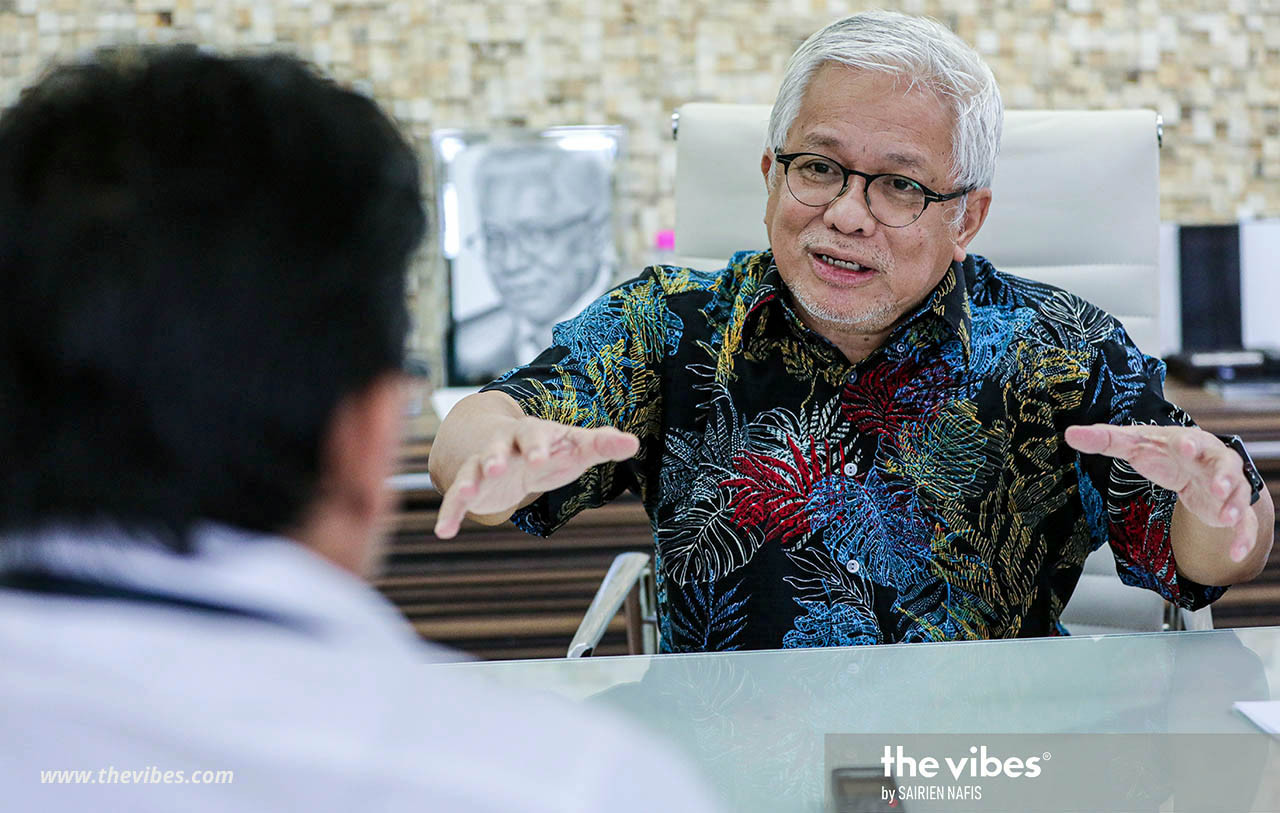
I am a media owner. Sinar Harian, the publication I started, can be considered successful. We have some influence. I have already retired and surrendered my business concerns to my children.
Seven years ago, I began a movement to get people familiarised with the Quran. I observed that as a Muslim nation, with Muslims at the pinnacle of our leadership, the manner in which we “carry” Islam is not truly reflective of the Quran and sunnah (the Prophetic tradition), especially with regard to abuse of power.
Seven years ago, I began a movement called Yayasan Warisan Ummah Ikhlas to enable Muslims to understand their faith better. I believe there is a serious problem with how Islam is conveyed in the minds and thoughts of Muslims. I wish for people to return to Islam – to read and truly understand the religion.
A lot of people are born Muslim but don’t understand the tenets. The Quran is in Arabic, and most Muslims here don’t understand Arabic. So many turn to their ustaz, but most ustaz don’t teach the Quran. They refer a lot to other texts when in fact you need to go to the root. We have to learn our religion through the source – the Quran.
So, for the past seven years, I have devoted a lot of time and resources to this – establishing Quran centres all over the country and world, and a Malaysian Quran hour. These programmes have received quite a lot of traction.
The Islam that I know, practice, and have studied is one that is clear in its condemnation of tyranny – it is a faith rooted in justice. Those who hold to Islam cannot cheat; they have to be honest, live by ethics, be trustworthy. And if they have more wealth than they need, they have an obligation – not an option – but an obligation to help others.
But I have come to realise that these efforts are directed towards solving the problems of the Muslims alone when, in fact, we are a multifaceted society, and there appears to be a lot of confusion in our society as a whole.
For us to be able to shape ourselves as a society, we really need to return to our belief system. It is one of the reasons I called for a return to our Rukun Negara, the first principle of which is “belief in God”. That principle means you must be God-believing, God-loving, God-fearing. And if you are God-fearing, you will not take bribes nor oppress people; you will not dispossess others nor be dishonest…you will be a just leader.
But it is not happening this way. We have too many people who are racist; those who are not racist are really very small in number. This is evident all over the world now, which means we need to humanise humans again, through matters of the soul.
To do this, we have to return to a common system of values.
For us, the main fight is against corruption. If we compare ourselves to other countries – Singapore, Hong Kong, New Zealand, South Korea – yes, they, too, have corruption but it is nowhere as pervasive there as it is here. There, if someone is charged with corruption they are really charged; some even take their own lives. Here, we don’t even seem to have a sense of shame.
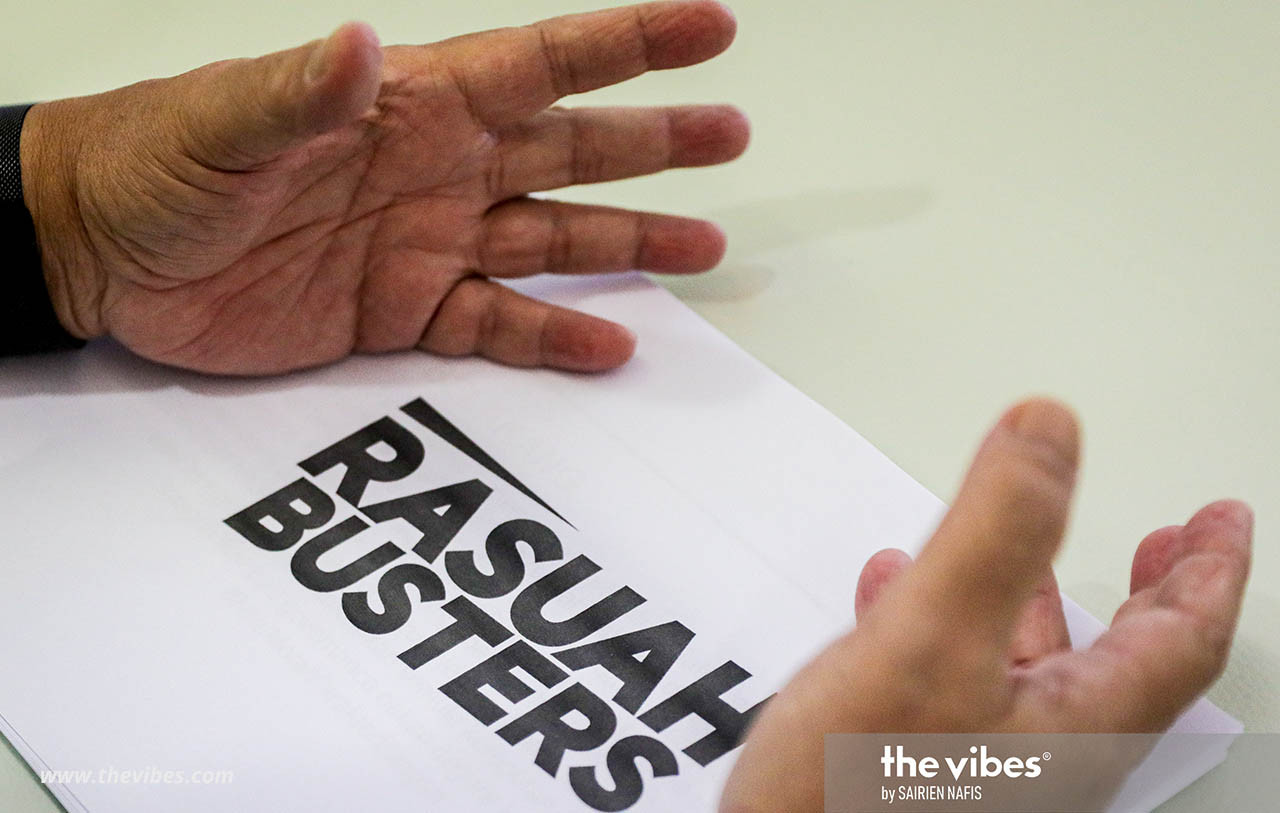
In these times, we are becoming aware that our main societal problem is corruption. But how do we arrest corruption? The Malaysian Anti-Corruption Commission alone cannot do it. It has to be from the bottom up. It is the people who can change things.
Why do we now have leaders who are perceived to be corrupt? Because our culture itself is corrupt. We expect our MPs to hand out money, but how much does an MP actually get paid? And because there is this expectation, MPs look for money elsewhere – from business, especially.
There are many who are sceptical because for such a movement, there must be political will. Yet we are the ones who choose our politicians, but what kind of politicians do we put in the market? So, we have to ensure that we clean the system from the bottom up.
This must be a people’s movement, and the fight must begin with the individual. The individual must change himself, his family, his circle; and if a single person affects a hundred people then a hundred people will change, and gradually it becomes a revolution.
That is why I started Rasuah Busters.
EK: The approach is novel and interesting – a path of religion and values. But there are many now who declare themselves religious and pious. Yet, this culture of corruption persists. Why is it not better to adopt an approach, for want of a better word, that is secular?
HY: My approach is rooted in common values.
I mentioned earlier that seven years ago I wanted to change the minds of the Muslims. In the world of the blind, the one-eyed man is king. That is what I wanted to change, and to do that we need more people to understand their religion better. Then they will not be exploited. We need to democratise religion. We want the people to study, and truly understand the Quran, not to surrender that responsibility to a religious teacher and just follow. That is my belief.
But when I began to advocate for Rasuah Busters, I did not embark on a religious path, I advocated an approach based on values – common values. This is a moral movement rooted in values. We must be able to unite through a system of common values. Every religious and community leader can uphold common values – even an atheist will find nothing objectionable in this. Then, this can become a truly organic movement.
For us to be able to rid ourselves of corruption we must have internal control. If our value system is firm, we will reject anything that is in conflict with it. When people try to bribe, you will respond by rejecting, saying: “This is against my religion or belief system.”
We must begin to break the chain of corruption, from the lowest to the highest levels. And the way to do it is through self-control, rooted in a system of values. For Muslims, this means having to return to Quranic values, not the values of the ustaz.
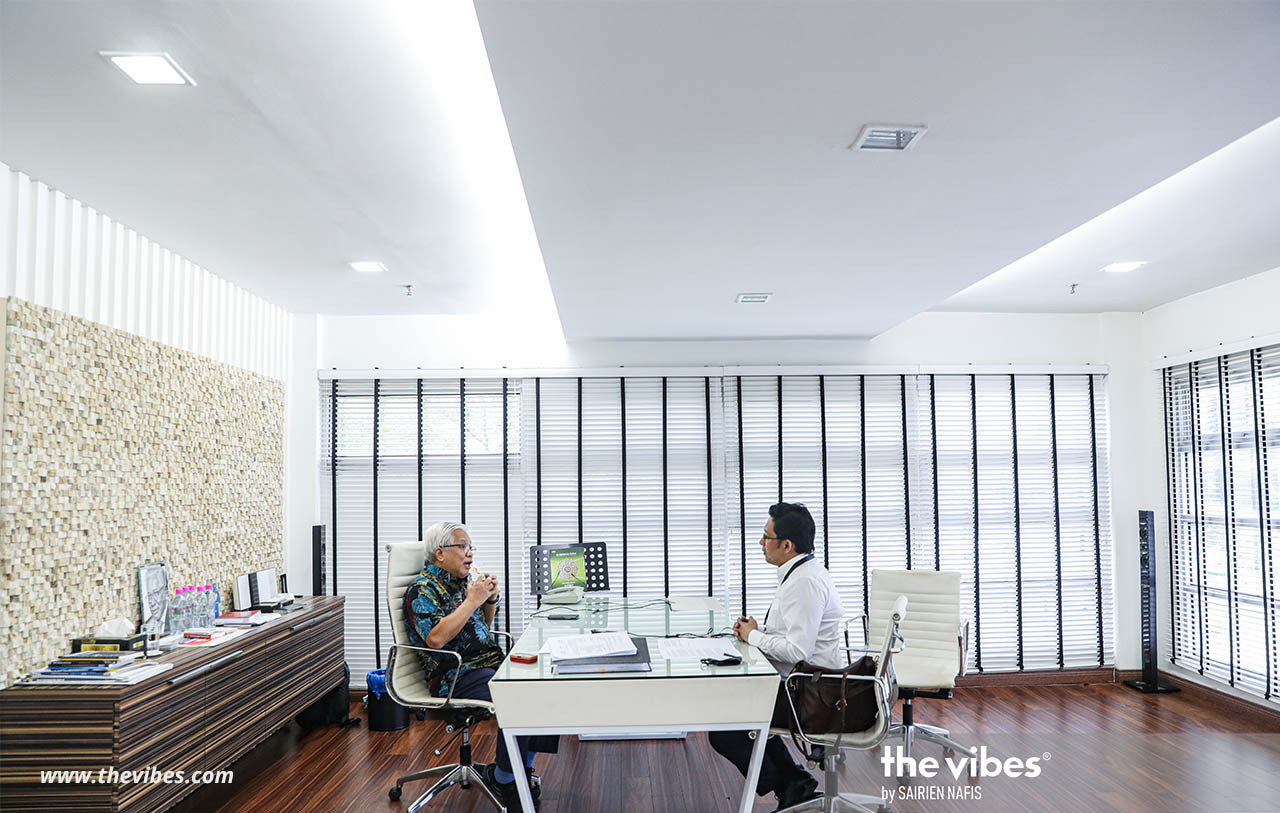
EK: I will have to play the devil’s advocate here: it could be said that the development of a value system depends largely on circumstance and context. Those who can afford it can hold on to “values”, and those who are not in that position will simply take what is given to them. Corruption can be eliminated only if a whole society is restructured…
HY: From the Islamic perspective, even if you are in difficulty, what you receive and give must be halal. As long as you have a choice, you can never receive anything that is haram.
For example, at this time, even if you are poor, if you are aware that something is not permissible, you are not allowed to accept it. It then becomes the responsibility of your neighbour to ensure you have food and can subsist.
Islam is about practice. You read, you understand, you put into practice. Just because you are poor does not mean you are not bound by responsibility. You cannot simply take the belongings of others even if you are hungry. Theft is forbidden in Islam.
And Islam places equal emphasis on responsibility as well as rights. It is stated in the Quran that being members of a single society means having to be responsible for all members of that society. When collecting tithes or donations at a mosque, you can’t only be changing the carpets of the mosque, changing the air-cons. The mosque has to turn its attention to the single mother who has been abandoned by her husband.
So, for me, it seems we have got our priorities all wrong. Islah – doing for the better – is a central part of Islam. When Allah blesses you with good fortune, it is your responsibility to assist others.
These days we outsource most of the responsibilities in religion to the ustaz. And many of these ustaz are schooled in madrasah, where they learn little else. In the Quran it is clearly stated: “Read in the name of Allah…” That is our ikrar (pledge). Why “read”? In order to seek knowledge. There is knowledge of everything in the Quran, even parenting.
In the personal life of our prophet, the first 14 years were spent teaching about character. It is that which ought to be practised in Muslim countries. In Islam, killing your own brother is a grave crime, but look at what has been happening in Yemen. In fact, it is even forbidden to kill your enemy except in instances of self-defence.
This is where I feel we are not abiding by the proper teachings of religion and as a result we are spiritually weak. We engage in corrupt practices, we infringe on the rights of others.
These are values that must exist in every individual, irrespective of religion. That is why we at Rasuah Busters have embarked on the safe and multiracial path – a moral resetting of values, morals and the character of our people. If you possess values and high morals, that will be your character.
EK: To reiterate, we live in a society that is multiracial, and while all that you say is moving, and indeed true to Islam, we live in a country with a constitution, not a covenant. Why does the fight against corruption have to be framed in these terms?
HY: Non-Muslims don’t have to embrace Islam to be a part of this fight. Within their own religions, these values exist. Our call is for everyone to go back to their belief systems.
In Malaysia, Islam is the official religion. The king, prime minister and most in the government are also Muslims, and Islam insists that you protect all of the people. So within a proper Islamic administration all people, including non-Muslims, will feel safe.
But now, as a result of a lack of trust between us, both non-Muslims and Muslims don’t feel safe. It is time we put all this mistrust in the past. Everyone needs to go back to a sense of ethics. It’s time everyone stops being so selfish.
EK: Rasuah Busters takes a very broad view of corruption. It includes aspects of bullying, extortion, embezzlement, and patronage. Within our society, however, corruption is mostly seen as a transaction between giver and receiver. What is your opinion of the level of understanding of corruption within our society?
HY: It is still very low, because many still do not view corruption, comprehensively, as something that is wrong. Even some of our senior leadership have that view, what more people on the ground!
That is why we have to begin at the level of creating real awareness. The need to want to bust rasuah must be planted in our hearts first – this means that we understand that even condoning it is wrong, what more involvement. Then we spread an understanding of what corruption actually involves.
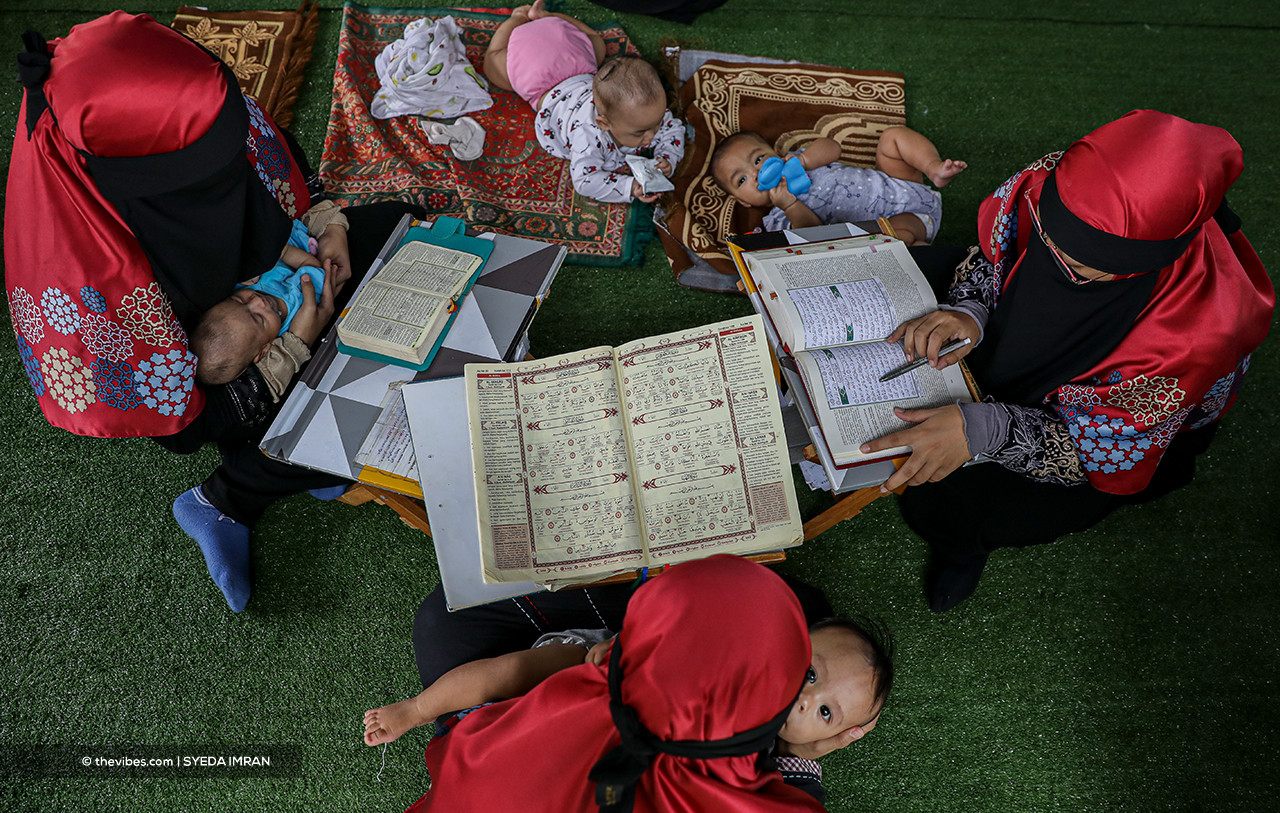
EK: Some prominent sociological studies by Syed Husin, for example, have shown that corruption is very much a cultural problem where the giving of gifts, and assistance in “solving problems” are characteristics of culture. How far is “culture” a problem when trying to create awareness about corruption?
HY: If people understand religion, they will understand the concept of niat (intention). That is why the level of thinking needs to be enhanced. If you have just been appointed a district officer, you must have some reservations about someone you don’t know visiting you and wanting to get to know you. This is where awareness is important.
Democracy is a system that works if the people are intelligent. The principle of honesty is important here. If you help others honestly without expecting anything in return, that is real assistance, but if you give help looking for reward, that is corruption. The niat (intention), then, is crucial.
EK: Up till now all our efforts at battling corruption have been concentrated on the law. Isn’t that insufficient? How do we inculcate a more humanist approach to battling corruption?
HY: We must adopt both approaches. I often say that these days people are more afraid of the law and CCTVs than the all-seeing God. Road rage, for example, has reduced because there is fear of being captured by a CCTV. Previously, there wasn’t any fear.
All efforts must be concerted. The law has to be firm, but now even the administration of law is seen to be unfair, unjust, and there appears to be increasing incidences of selective prosecution. When selective prosecution occurs, it means we have elected leaders who are not just; and whoever elects people who are not just have little idea of justice to begin with. We have to ensure the responsibility of choosing leaders who are truly honest.
But honesty is subjective. We have to know what we understand by honesty. If we ourselves are dishonest, then we simply believe that dishonesty is a “part of the process or system”.
This fight requires a mental revolution. Why do I feel it can succeed now? Because while it would take a hundred years to reach that level in the past, with present communication networks you are able to raise a fight. If a million citizens rise and say this is haram (wrong) the process can be hastened.
That’s why Rasuah Busters has a programme that is designed for the short, middle, and long terms. We must first begin at the awareness stage, then move towards structural change, and after that a change in the entire value system.
EK: It’s like a civil disobedience movement then?
HY: Yes! To disrupt.
EK: There are many references to the federal constitution and the Rukun Negara by Rasuah Busters. What is the role of these in the fight against corruption?
HY: The first principle of the Rukun Negara is “kepercayaan kepada Tuhan” – belief in God; the second is “kesetiaan kepada raja dan negara” – loyalty to the king and country; the third is “keluhuran perlembagaan” – supremacy of the constitution.
So, if we want to change our system we have to be God-fearing and God-believing. If all the mosques, churches, temples, and gurdwaras begin this process at once, we can hasten awareness.
The constitution? Because society must be governed by a sense of the rule of law. For the third principle, we must acknowledge that even the royal institution must be faithful to the principles contained in the Rukun Negara.
Now is the best time for us to develop this awareness. It has been more than a year that people have been confined to their homes. If we drum up this message about corruption, it will take root. In this time of the pandemic we are all suddenly aware of our mortality.
Upon the launch of Rasuah Busters, I penned an open letter. I spoke of divine intervention. This – the pandemic – is divine intervention.
In Malaysia, all over the world, even, we have mismanaged our religions; compromised our value systems.
The result is growing hostility, especially between races, yet the real culprits are those who are dishonest; instrumentalising tensions within society for their own profit. And these people do not represent any particular race or religion.
If we can go to the essence of the matter, InsyaAllah, we can correct it. You may be a billionaire with planes you cannot fly, private jets you can’t travel in now – that is why I say this is divine intervention. It is now or never – if we don’t seize the opportunity now, we won’t ever resolve it.
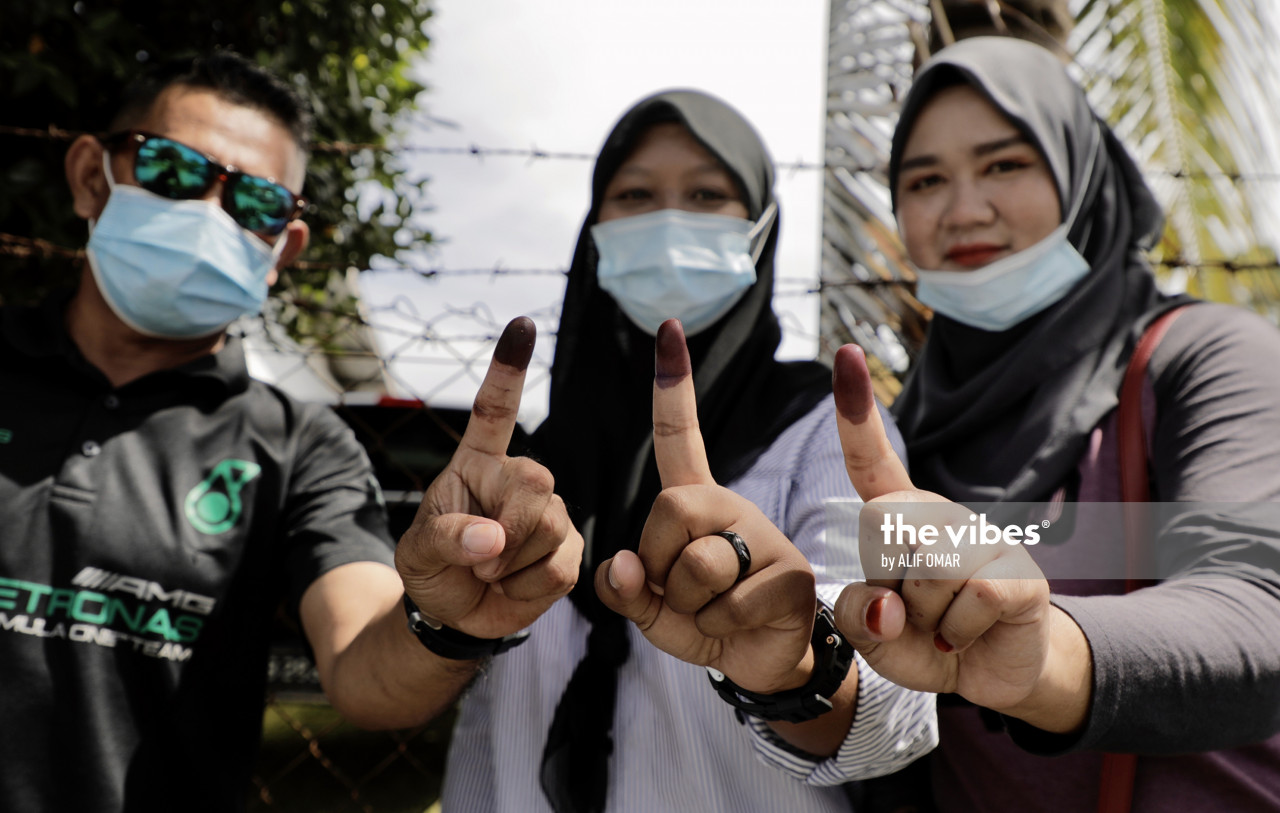
EK: It has been four decades since the New Economic Policy; there has been great social mobility in all that time. Yet we see very little by way of serious social investment by the wealthy into our community. Why is that not happening?
HY: Greed. People are not afraid of death. They think they will never “reach the skies”. So if they have 10 billion, they will clamour for 100 billion. And to have 100 billion you have to be cruel! You have to buy land cheaply from the kampung so you can sell it at inflated prices.
My mission now is to humanise humanity – to establish human governance. In Islam there is the concept of syukur (gratitude). We work hard, we reap the rewards, we are grateful, and we realise that a part of that reward belongs to someone else.
We return to our faith, our belief system. We have our own religions, but they have common values. This country is led by Muslims and their approach must be Islamic. But not in the way it is demonstrated now. It must be a true Islam exemplified by the Quran and sunnah. When you lead you must be just, when you speak you must tell the truth, when you profit you must distribute!
EK: What is your understanding of the relationship between corporate interest and politics?
HY: It is intertwined. People in power chase power, people in business chase profit. They lose their sense of humanity. Human beings must have a proper perspective or they will lose their sense of responsibility to God, humanity, and nature.
Rights and responsibility go together and from this justice evolves. What happens if these three do not exist?
It may sound idealistic, even naïve to some, but there must be this realisation. This pandemic is really a moratorium for everyone. Whether you are a big or small business, you have been swept by this tsunami. This is the best opportunity for everyone to realise what we have been doing this past half-century is wrong.
It is time to reboot, reinvent – we need to inject a sense of equilibrium.
EK: In this effort, your movement will definitely encounter politics. There have been efforts in the past, within the Islamic Hadhari project under the Abdullah administration for example, that proved a failure. There was no real political will. How are things different now?
HY: The majority of people, irrespective of race and religion, no longer have faith in political people. Everyone is talking about corruption. This movement is getting traction because people trust it. It has no ulterior agenda.
If everyone in society rises and says we are now going to choose good leaders – not just young leaders, but good leaders – a political will will surely evolve.
At present, no one really has power; everything is finely balanced. So the people must rise. The intention is not to go after anyone. We are just saying “enough is enough”. We need a clean set of leaders. And the people’s barometer for leaders must be set high.
For people who know politics and have a keen interest in politics, now is the best time for them to step up. The old dragons can no longer assert themselves. A new group will emerge and by the time the 15th general election comes, we, the people, will have a far better choice of candidates.
It is time we let the old-timers go. The challenge now is for new people to oust their leaders because these leaders have failed us. There is political corruption now because these leaders have allowed it to flourish. In fact, I wouldn’t be surprised if there are independent candidates who can win in the next election.
What we need is a new ecosystem, a change of values across the board. It is not about politics alone, it is the entire system. That includes us, the people. We can’t blame politics alone when we are a part of the problem.
EK: Do you feel institutions such as MACC are restricted in terms of their actual structuring? Do you think the agency should be given wider powers to administer its duties?
HY: MACC is not effective because it has to serve politicians with little integrity. We have to place MACC above politicians. We must demand structural change, and the whole process must be holistic – people must change, politics must change, the legal framework must change – there must be a change in existing structures.
The giver, for example, must now also be punished. It’s that kind of total reform that is required. MACC would be effective if it is independent. If a new breed of politician emerges, they must demand this. In fact, the public itself must demand this.
EK: What is the comprehensive strategy of the Rasuah Busters?
HY: At present we have a think tank of 14 people – multiracial and multireligious. They have prepared a three-phase plan – to create awareness through a massive media campaign while forging strategic alliances with other non-govermental organisations (NGOs).
The second and third phase will follow from this.
It has to be a very concerted and well-organised effort. We have no political agenda. But, we want to clear the way for a new breed – again, not just youthful, but a new and clean political force to emerge.
Those who have an interest in politics but never joined because they did not have the money or could not tolerate the culture of fitnah (deceit) should consider entering now. People have started to realise that we need to change our political culture, and that is a sign of our maturity.
Rasuah Busters is a coalition of the willing. It is a movement that has emerged from the silent majority. All this while it is the noisy minority that has been in charge. Now it is time for the silent majority to take responsibility.
Rasuah Busters has a full-time secretariat to link our movement with other NGOs. We are very organised – we have corporate people, marketing and advertising people, lawyers, religious people – and it is a multiracial movement.
But this is only the first level. The movement is open to everyone. It seeks to truly be a people’s movement that wants to bring about a change of culture, so we can truly bring hope for Malaysia – “cahaya untuk Malaysia”. – The Vibes, July 25, 2021
Malaysians can start their own Rasuah Busters movements by registering via this form. They can also follow updates, and get information and materials from the Rasuah Busters website or through its Facebook, Instagram and Twitter accounts.
Interested volunteers can send a WhatsApp message to 019-382-3635 and complaints can be lodged at 019-668-0920, while participants can track their graft-busting activities with the group using the hashtag #RasuahBusters.
Note: This interview with Datuk Husammuddin Yaacub was conducted prior to the implementation of the enhanced movement control order



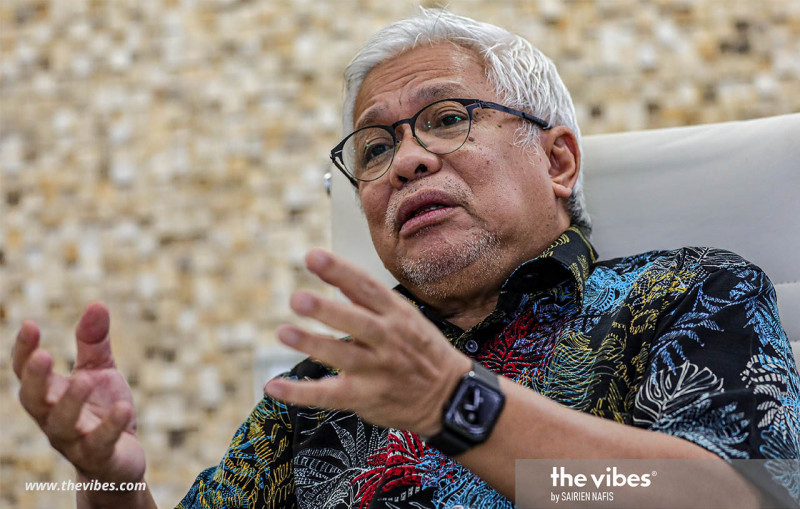
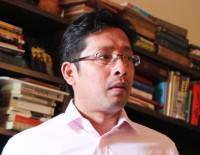


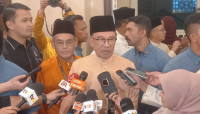

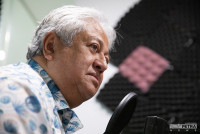
.png)

